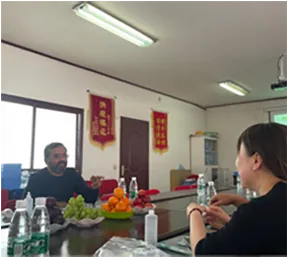https://www.wahmg.com/)">
disposable plastic juice bottles
disposable plastic juice bottles
The Impact of Disposable Plastic Juice Bottles on the Environment
In today’s fast-paced world, convenience often takes precedence over environmental considerations. One of the most prominent examples of this phenomenon is the widespread use of disposable plastic juice bottles. While these bottles provide an easy option for consumers, their environmental impact cannot be overlooked.
Disposable plastic juice bottles are typically made from polyethylene terephthalate (PET), a type of plastic that is lightweight, durable, and recyclable. However, the convenience of single-use bottles means that they are often discarded after just a single use. According to statistics, millions of plastic bottles are used daily worldwide, contributing to the staggering amount of plastic waste that fills landfills and oceans.
One of the primary concerns with disposable plastic juice bottles is their slow decomposition rate. It is estimated that PET can take anywhere from 100 to 1,000 years to break down in the environment. During this extended period, these bottles can pose a threat to wildlife, which may ingest or get entangled in the debris. Marine life, in particular, is adversely affected, with many species mistaking plastic for food. This leads to malnutrition, internal injuries, and even death for countless marine animals.
Moreover, the production process of plastic bottles is resource-intensive. The manufacturing of PET bottles involves significant amounts of fossil fuels, contributing to greenhouse gas emissions. It also requires substantial water resources, which can put pressure on local communities, particularly in areas already facing water scarcity.
disposable plastic juice bottles

Despite the recyclability of PET, a mere fraction of these bottles is actually recycled. A report from the Ellen MacArthur Foundation revealed that only 9% of plastic waste ever produced has been recycled, with the rest ending up in landfills or the environment. Additionally, the recycling process itself can be energy-consuming and may not always be feasible, especially in regions with inadequate recycling infrastructure.
To address these issues, various strategies can be implemented. One immediate solution is to encourage consumers to opt for reusable containers instead of single-use plastic bottles. By choosing glass or stainless-steel alternatives, individuals can significantly reduce their plastic footprint. Furthermore, companies need to rethink their packaging strategies, investing in sustainable materials and implementing deposit-return schemes that incentivize recycling.
Legislation plays a vital role in mitigating the plastic crisis as well. Many countries have begun to impose bans or taxes on single-use plastics, motivating businesses to adopt more sustainable practices. Implementing stricter regulations on plastic production and encouraging innovative waste management solutions can substantially lessen the burden of disposable plastic bottles on the environment.
In conclusion, while disposable plastic juice bottles provide convenience, their environmental repercussions are severe. By embracing sustainable practices, promoting recycling, and opting for reusable alternatives, we can significantly reduce the impact of plastic waste on our planet. Every small effort counts in the larger battle against plastic pollution, and it is imperative that consumers, businesses, and governments work together to create a more sustainable future.
-
Wholesale Plastic Juice Bottles with Caps 16 oz Options Available Bulk Packaging SolutionsNewsJun.10,2025
-
Laboratory Apparatus Reagent Bottle – Durable & Chemical Resistant Bottles for Safe StorageNewsJun.10,2025
-
Squeezable Dropper Bottles Durable, Leak-Proof & CustomizableNewsMay.30,2025
-
Affordable Plastic Petri Plates Sterile & Disposable Lab-GradeNewsMay.30,2025
-
Eye Dropper Caps Precision 24/410 & Plastic Bottle-Compatible TipsNewsMay.30,2025
-
Affordable Mini Spray Bottle Price & Wholesale Deals Shop NowNewsMay.29,2025





















